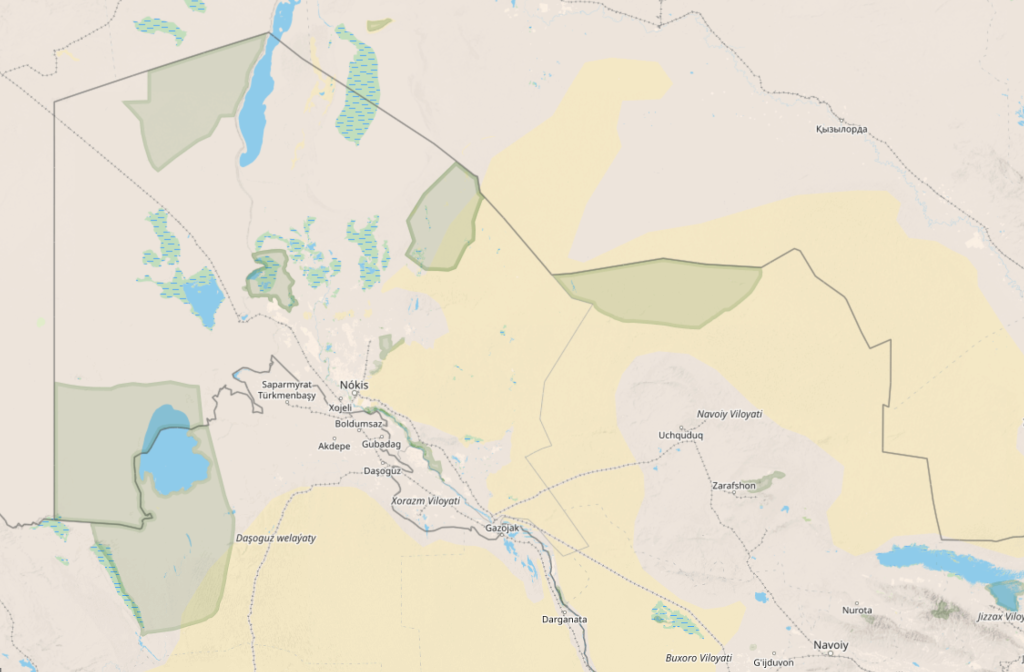As follow-up to our recent research activities in Central Asia, we are very glad to share that our group recently started working on a new research project entitled “Promoting sustainable groundwater solutions for rural farming communities in Karakalpakstan, Uzbekistan – FARM”.

The newly funded project started on 1 October 2023 for a duration of two years in cooperation with the International Innovation Center for Aral Sea Basin under the Ministry of Ecology, Environmental Protection and Climate Change of the Republic of Uzbekistan (IICAS) and the United Nations University, Institute for Integrated Management of Material Fluxes and of Resources (UNU-FLORES). The main objective of the project is to increase the resilience of farmers in Karakalpakstan region to the impact of the desiccated Aral Sea and develop adaptation measures leading to increased water availability and accessibility. On the German side, the project is funded by the German Federal Ministry of Education and Research (BMBF), while in Uzbekistan the funding is provided by the Ministry of Higher Education, Science and Innovation (MHESI).
The case study addressed in the project is the autonomous republic of Karakalpakstan, an arid region located in the western part of Uzbekistan suffering from the severe impact of desiccated Aral Sea basin. Until 1960, the Aral Sea was the fourth-largest inland lake in the world but intensive use of surface water for irrigation over several decades drastically reduced the inflow from its tributaries Amu Darya and Syr Darya rivers which led to a shrinkage of about 90% of its freshwater reserves – one of the greatest catastrophes of the last century. The combined effect of Aral Sea desiccation, severe droughts, changes in rainfall pattern and concentrated demand of water for agriculture and industrial use led to salinization of agricultural soils and decrease of crop yields, reflected in negative water balances in many parts of the region. The present project aims to address these issues on two strategical levels: a) develop sustainable groundwater management and adaptation strategies based on the socio-economic, environmental and technical requirements of the region; and b) contribute to the further development of the scientific community in the country by supporting early-career research innovation.
To achieve these goals, a transdisciplinary research group will be established at the International Innovation Center for the Aral Sea Basin under the President of Uzbekistan (IICAS) following the successful example of the junior research group INOWAS at Technische Universität Dresden in Germany. A comprehensive analysis and diagnosis of the existing conditions in the selected study area will be conducted from a multidimensional perspective, covering a characterisation of the ecological and agricultural status-quo, as well as the institutional framework. Based on the local needs, adaptive solutions for sustainable groundwater management to support the agricultural activities will be developed and promoted in selected areas in Karakalpakstan through targeted capacity development measures.
